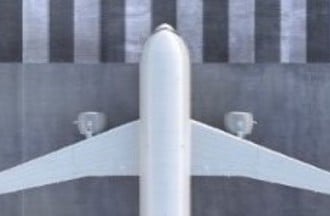
Montreal – The International Air Transport Association (IATA) expressed deep disappointment and frustration that the Canadian government has failed to provide concrete support measures for Canada’s air transport sector in the government’s Fall Economic Statement.
IATA continues its call for the Canadian government to provide financial support to keep the sector viable and to safely re-establish connectivity without quarantine by using testing.
“The government has been stating for months that it is working on a vital support package for Canada’s airlines. It has failed to deliver thus far. Other governments see the need for financial support as an investment in economic recovery and have supported the industry with US$173 billion. Canada has some of the most draconian COVID-19 measures which have essentially shut down most air connectivity and put the sector in a tailspin,” said Peter Cerdá, IATA’s Regional Vice President, The Americas.
The biggest hurdles in stimulating international air traffic continue to be border closures and quarantines, both of which the government of Canada has just extended to 21 January 2021. During its 76th Annual General Meeting held last week, IATA airline members unanimously called on governments to use testing to re-open borders to travel without quarantine.
“In addition to financial support, the government needs a plan to re-connect Canadians internally and to the world. Quarantines kill demand for air travel and destroy jobs across the travel and tourism sector. COVID-19 testing for travel would keep Canadians safe and save jobs. This is an emergency. The same speed and determination that shut connectivity down needs to be applied to supporting testing as the safe option to re-establishing connectivity, bringing families together, and catalyzing the economy,” said Cerdá.
A Healthy Air Transport Sector is Critical
- According to IATA’s Value of Air Transport Report, in 2019 aviation contributed CA$51.4 billion to Canada’s annual GDP. Spending by foreign tourists supported another CA$16.7 billion of GDP, making a total a contribution of CA$68.1 billion. In total, 3.2% of the country's GDP was supported by the air transport sector and foreign tourists arriving by air.
- Airlines provide the lifeline for many remote and regional communities from coast to coast, something which the government even highlighted in the Speech from the Throne on 23 September 2020: And to further link our communities together, the Government will work with partners to support regional routes for airlines. It is essential that Canadians have access to reliable and affordable regional air services. This is an issue of equity, of jobs, and of economic development. The Government will work to support this.
- Aviation will play a crucial role in bringing the vaccines to Canada and distributing them across the vast expanse of the country.
“The government needs a plan to support this critical sector. The sector is in a crisis as never before. At the same time its value in linking people, supporting jobs and delivering goods—like vaccines—has never been more crucial. The government is under pressure to control the pandemic and support the economy. A plan for aviation will help it do both. And there is no time to spare,” said Cerdá.
For more information:
Corporate Communications
Tel: +41 22 770 2967
Email: corpcomms@iata.org
Notes for Editors:
- IATA (International Air Transport Association) represents some 290 airlines comprising 82% of global air traffic.
- You can follow us at twitter.com/iata for announcements, policy positions, and other useful industry information.
- Examples of countries providing sector specific aid to airlines:
- United States: US$35.7 billion
- Germany: US$13.6 billion
- France: US$7.6 billion
- Japan: US$4.1 billion
- United Kingdom: US$3.3 billion

